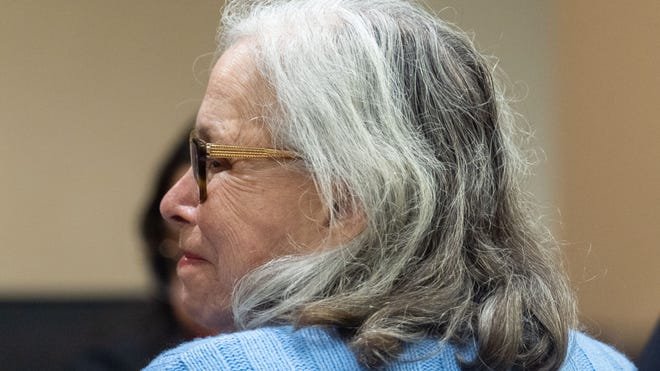
By The General Justice Lawyer, June 19
As Bryan Kohberger’s trial looms on August 11, 2025, in Ada County, Idaho, the case—charging him with the 2022 murders of four University of Idaho students—transcends its tragic facts.
This death penalty prosecution is a legal lightning rod, raising profound questions about the role of forensic artificial intelligence (AI), the fragility of fair trial rights, and the ethics of capital punishment in a media-saturated age. With forensic AI poised to analyze DNA, cellphone data, and behavioral patterns, the Kohberger trial could redefine how courts navigate technology and justice. Here, we unravel three chilling legal questions shaping this historic case.
1. Can Forensic AI Evidence Withstand Legal Scrutiny?
The prosecution’s case hinges on a trifecta of evidence: Kohberger’s alleged DNA at the scene, cellphone pings placing him nearby, and a white Hyundai Elantra tied to the suspect. Enter forensic AI, a cutting-edge tool that could enhance this evidence by cross-referencing DNA markers, mapping cellphone trajectories, or even predicting behavioral patterns based on digital footprints. But its use raises a thorny question: is AI-generated evidence admissible under Idaho’s strict evidence rules?
Kohberger’s defense, led by Anne Taylor, is poised to challenge AI’s reliability, citing cases like Daubert v. Merrell Dow (1993), which requires scientific evidence to meet rigorous standards. If AI’s algorithms lack transparency or rely on untested models, Taylor could argue they violate Kohberger’s Fourth Amendment protections against improper searches. Recent filings suggest the defense is already targeting DNA evidence, noting three unidentified individuals’ DNA under a victim’s nails. A ruling excluding AI evidence could weaken the prosecution, while its acceptance might set a precedent for tech-driven trials, raising questions about fairness when defendants lack access to similar tools.
2. Does Media Saturation Doom a Fair Trial?
The Kohberger case is a media maelstrom, with Dateline specials, Amazon docuseries, and leaked “inside sources” flooding public discourse. This prompts a second question: can Kohberger receive a Sixth Amendment fair trial in a jury pool steeped in prejudgment? On May 20, 2025, Taylor moved to delay the trial, arguing that media leaks—potentially from law enforcement—taint jurors. Judge Steven Hippler, who on June 19 signaled the trial’s likely August start, faces a constitutional tightrope: balancing public access with impartiality.
Forensic AI could exacerbate this issue. If AI-generated profiles or predictions leak, they risk amplifying bias, as seen in past cases where pretrial publicity led to overturned convictions (e.g., Sheppard v. Maxwell, 1966). Hippler’s gag order and sanctions for leaks aim to curb this, but the digital age’s information flow is relentless. The trial’s outcome could hinge on whether Hippler’s rulings protect Kohberger’s rights or bow to public pressure, testing the judiciary’s ability to insulate justice.
3. Is the Death Penalty Ethical When Evidence Is Tech-Driven?
With prosecutors seeking the death penalty since June 2023, a final question looms: is it ethical to impose capital punishment when evidence relies on emerging tech like forensic AI? Death penalty cases demand heightened scrutiny, as errors are irreversible. The defense’s alternate suspect theory and challenges to AI’s reliability underscore the risk of doubt. Idaho’s conservative leanings amplify the stakes, as juries may favor retribution over nuance.
This question echoes debates in cases like Atkins v. Virginia (2002), where evolving standards of decency shaped sentencing. If AI evidence sways a death sentence, appellate courts may grapple with whether its use aligns with Eighth Amendment protections against cruel punishment. The Kohberger trial could force a reckoning on whether tech-driven convictions meet the moral and legal threshold for execution.
- Donna Adelson Found Guilty on All Counts in Dan Markel Murder CaseDonna Adelson Found Guilty on All Counts in Dan Markel Murder Case
- Epstein Files: Survivors Break Silence on Capitol HillEpstein Files: Survivors Break Silence on Capitol Hill
- Cardi B Assault Trial Verdict — She’s Not The DramaCardi B Assault Trial Verdict — She’s Not The Drama
- Jim Crow Era — Louisiana’s Split Juries Problem and the Limits of RetroactivityJim Crow Era — Louisiana’s Split Juries Problem and the Limits of Retroactivity
- Grooming Gangs in the UK — A Crisis Re-Exposed in 2025Grooming Gangs in the UK — A Crisis Re-Exposed in 2025
A Legal Frontier
The Kohberger trial is a crucible for the law, testing forensic AI’s place in court, the Sixth Amendment’s limits, and the death penalty’s ethics. As Judge Hippler navigates evidence disputes and media chaos, his rulings will ripple beyond Idaho, shaping how technology and justice intersect. Will forensic AI deliver a checkmate for the prosecution, or will its uncertainties stalemate the case in appeals? These questions demand answers as the gavel falls.
Follow me on X at @genjustlaw for live courtroom updates and incisive legal analysis, unpacking the trial’s impact on the future of law.
Author

Latest entries
 Donna Adelson Trial2025-09-05Donna Adelson Found Guilty on All Counts in Dan Markel Murder Case
Donna Adelson Trial2025-09-05Donna Adelson Found Guilty on All Counts in Dan Markel Murder Case True Crime2025-09-03Epstein Files: Survivors Break Silence on Capitol Hill
True Crime2025-09-03Epstein Files: Survivors Break Silence on Capitol Hill US2025-09-03Cardi B Assault Trial Verdict — She’s Not The Drama
US2025-09-03Cardi B Assault Trial Verdict — She’s Not The Drama US2025-08-30Jim Crow Era — Louisiana’s Split Juries Problem and the Limits of Retroactivity
US2025-08-30Jim Crow Era — Louisiana’s Split Juries Problem and the Limits of Retroactivity




